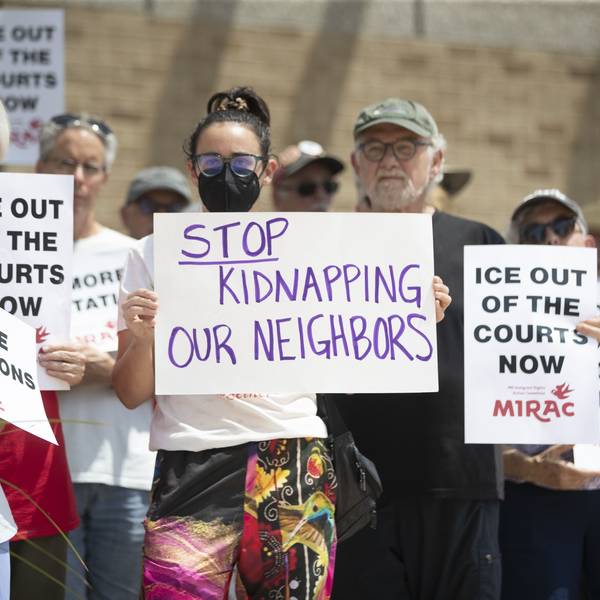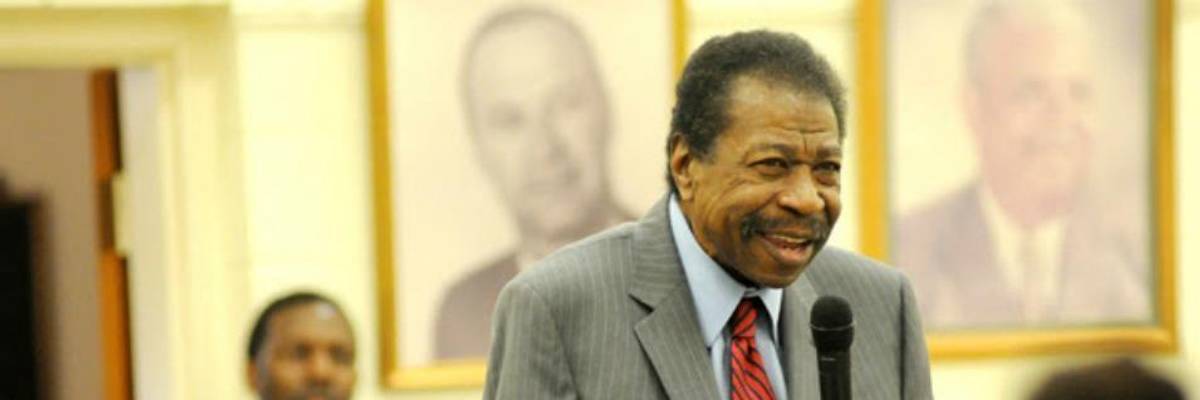On December 20th, 1958, exactly 62 years ago to this day, a young law student on his way home for the holiday break was on the brink of setting the country one step forward towards racial equality. His arrest on misdemeanor charges in a racially charged case resulted two years later in a landmark U.S. Supreme Court decision outlawing segregation in public transportation. Bruce Carver Boynton, the student and plaintiff in Boynton v. Commonwealth of Virginia, passed away at age 83 on November 23rd, 2020. His audacious act as a young adult, inspired a series of nonviolent youth led actions that changed the course of history.
"The foundation that our previous youth, now elders of the movement, have left us with will continue to guide us forward and inspire us to take action for a just and equitable society."
The then 21-year-old Howard University law student had boarded a bus home bound for the holidays when during a 40-minute rest stop at a Trailways Bus terminal in Richmond Virginia, decided to get some food before the long journey home. Realizing the restaurant was segregated and that the "colored" section was dilapidated and unsanitary, Boynton decided to give the waitress his order at the white's section with no intention of getting into "good trouble." He was greeted by a disgruntled manager requesting that he move to the "colored" part of the facility. "The manager took his finger, placed it in my face and said n***** move."
As a third-year law student, he understood both the ramifications of not complying with the order as well as the potential that a legal challenge could pose in a court of law. After explaining to the manager that he was an interstate bus passenger wishing to order something to eat, a police officer arrived and arrested Boynton that night. He was charged with misdemeanor trespassing, fined $10 in a Richmond municipal court, and spent the night in jail.
Growing up in a family that promoted equality, justice, and civil rights, Boynton had always been taught at an early age that one does not accept second class citizenship for first class service. He knew that his protest had a legal basis and that the appeals process offered an opportunity to challenge unjust state laws that continued to subjugate people of color. As a youth, he also knew that a small act in disrupting the status quo could have enormous impact across the South.
NAACP attorney Thurgood Marshall, who later became the first black associate justice on the nation's highest court, saw the potential precedent-setting nature of his case and represented the law student in the appeal process to the Supreme Court. Though Marshall and Boynton were aligned in the shared goal to establish justice, they differed on legal strategies for how to get there. Marshall advocated that the case be argued on the premise that his arrest violated the 14th amendment that guaranteed "equal protection of the laws." Boynton, fearful that the court would not want to be pushed that far, argued that his arrest violated the Interstate Commerce Act of 1887, which prohibited racial discrimination of interstate passengers and public facilities. The disagreement over tactics led Boynton to say to Marshall "this is my damn case and I can take it back if I want to."
In a 7-2 decision, the landmark case Boynton v. Virginia held that racial segregation on public transportation including bus stations, did indeed violate the Interstate Commerce Act. Ironically it was associate justice Hugo Black, a former Klansman, who wrote the majority opinion. In effect, this ruling outlawed racial segregation and discrimination in any public facility as it pertains to transportation.
Boynton exemplified the power of a young person to take a principled stand on behalf of human dignity. His brazen act at the Richmond Trailways bus station that cold day in December inspired other youth activists to organize in a series of nonviolent direct actions that influenced the course of history.
Five months after Boynton was decided, "a fusion coalition" of black and white young men and women from various backgrounds rose up across the South to test whether the decision was being applied. They were known as the Freedom Riders. These young adults and college students, which included a 21-year-old John Lewis and a 23-year-old Diane Nash, were attacked, beaten, tear gassed, and arrested for challenging the Jim Crow system of discrimination. Their efforts compelled the Kennedy Administration to intervene, and as a result helped fuel momentum towards the Civil Rights Act of 1964 as well as the Voting Rights Act of 1965.
"It is now up to our elected officials, members of the U.S. Congress, and the next administration to heed the call of the demands that young people are facing each and every day."
There are even some accounts that say that Boynton's actions also inspired the lunch counter sit-ins, in which young African Americans engaged in civil disobedience at segregated lunch counters to protest the discriminatory laws in the South. In the fight for justice and equality, youth helped elevate the civil rights struggle to the national stage and inspired the tactics of nonviolence for the cause of integration within the South.
62 years after Boynton's arrest, today's rising generation continues to shake the conscience of America. Whether they are militating against senseless gun violence within urban communities or countless mass shootings in our schools; to a global cry for our political leaders to address the raging climate crisis disproportionately affecting our black and brown, indigenous and poor communities; to the continued call to tackle police violence and the innocent killings of black men and women, to demanding enduring protections for all immigrants, regardless of immigration status--we look to youth as an engine of social change. They have sparked a nationwide conversation on what our morals ought to be for a more perfect union.
This election season reveals a demographic dividend. Inspired by our forebearers in the civil rights movement, today's young people made their voices known at the ballot box and in hundreds of protests and demonstrations across this country. They continue to stand up throughout our history and say enough is enough, echoing Boynton's actions and the actions of countless others to counter injustice.
The Poor People's Campaign continues to organize with students and young adults to demand that the nation address systemic racism, systemic poverty, militarism and the war economy, ecological devastation, and the nation's distorted moral narrative of false religious nationalism. The foundation that our previous youth, now elders of the movement, have left us with will continue to guide us forward and inspire us to take action for a just and equitable society. Through political education, direct action, resistance, organizing, mobilizing, and registering people for a movement that votes, a re-imagining of society is possible and change is inevitable. It is now up to our elected officials, members of the U.S. Congress, and the next administration to heed the call of the demands that young people are facing each and every day. Only then, will the nation begin to heal from the previous and existing wounds of our society.




